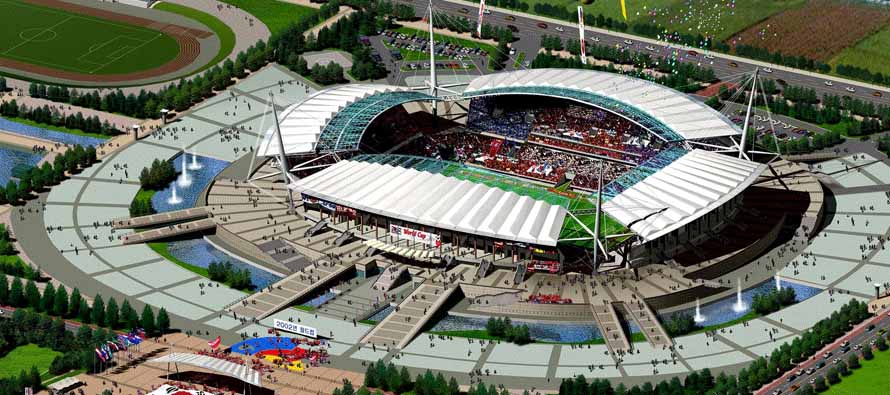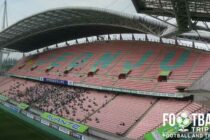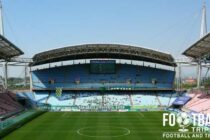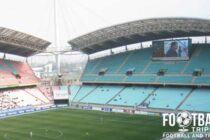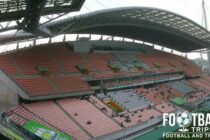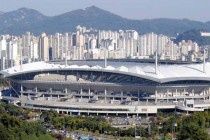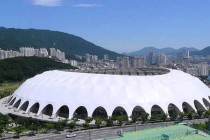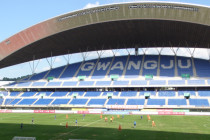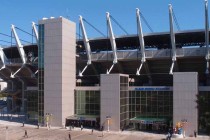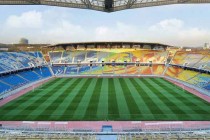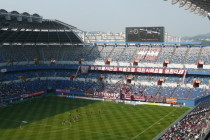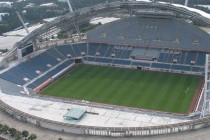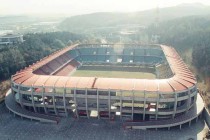Jeonju World Cup Stadium nicknamed Fort Jeonju by Korean sports fans is an football stadium located in the South-Western city of Jeonju. Home of K-League Classic Side Jeonbuk Hyundai Motors, the stadium’s large 42,477 capacity was designed for the 2002 World Cup in mind.
Jeonbuk Hyundai Motors Stadium Guide
Stadium Facts
| Overview | |
|---|---|
| Team: | Jeonbuk Hyundai Motors |
| Opened: | 2001 |
| Capacity: | 42,477 |
| Address: | 1190-13, Yeoui-dong, Deokjin-gu, Jeonju |
Jeonju World Cup Stadium History
Jeonju World Cup Stadium was constructed for 2002 World Cup which was jointly hosted by Japan and South Korea. Taking just over two years to build, construction began on February 19th 1999 and finished on 8th November 2001 when President Kim Dae-Jung conducted a small opening ceremony.
With a capacity of 42,477, Jeonju Stadium was the third smallest of South Korea’s venues, just ahead of the likes of Daejeon and Jeju which were both large enough to accommodate 40,407 and 42,256 supporters respectively. In total it hosted three matches of the tournament which included two Group games, and one Round of 16.
The first game hosted featured Spain against Paraguay which saw the Europeans get off to an ideal start in Group B with a 3-1 victory. The second game was in Group D, and saw Portugal blitz Poland 4-0, and third match in the knock-out stages saw United States defeat historic rivals Mexico by 2 goals to nil.
As for club football, Jeonju World Cup Stadium hosts the distinction of having hosted an AFC Champions league final, however it was allocated randomly. Usually played at a natural, when Jeonbuk and Al-Sadd reached the final both venues were put into a hat and one was draw out at random. Regardless, hosting the final has still added another chapter to Jeonju stadium’s history.
The stadium is commonly referred to as “Fort Jeonju” by South Korean football fans, especially those of the resident side, Jeonbuk Hyundai Motors.
Stand Photos
How to get to Jeonju World Cup Stadium
Where is Jeonju World Cup Stadium?
Frequently Asked Questions
Who plays at Jeonju World Cup Stadium?
South Korean side Jeonbuk Hyundai Motors play their home matches at Jeonju World Cup Stadium.
What is the capacity of Jeonju World Cup Stadium?
As of 2024 Jeonju World Cup Stadium has an official seating capacity of 42,477 for Football matches.
When was Jeonju World Cup Stadium opened?
Jeonju World Cup Stadium officially opened in 2001 and is home to Jeonbuk Hyundai Motors
Are there any Covid restrictions at the stadium?
Covid Restrictions may be in place when you visit Jeonju World Cup Stadium in 2024. Please visit the official website of Jeonbuk Hyundai Motors for full information on changes due to the Coronavirus.

